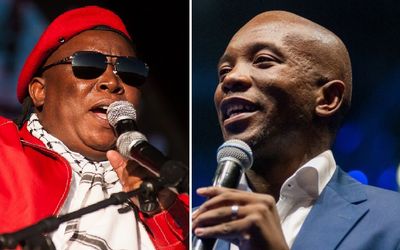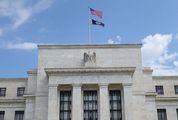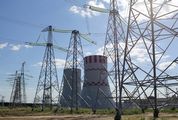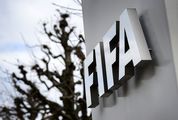THE run-up to the local government elections will be marked by a war of attrition between the Democratic Alliance (DA) and the Economic Freedom Fighters (EFF) for a small pool of frustrated and alienated black voters who have lost faith in the African National Congress (ANC) and its government.
The DA secured 23.9% in the 2011 local government elections. The EFF remains untested at this level, but managed 6.6% in the 2014 national elections.
Both parties will be favoured by the turnout as there is typically a disproportionate turnout in favour of the opposition in local government elections — partially because voters are less enthusiastic than they are in national elections and partially because the DA, in particular, is expert at turning out its voters through good systems and sheer bloody-mindedness.
The DA will be looking to continue its record of growth. In the run-up to the 2014 national elections, it made much of a 30% target. In the end, it fell well short, achieving 22.2%.
Local and national results can’t be compared because of the turnout differential, but you can be fairly sure the DA will be looking to close the gap between the 23.9% it achieved in 2011 and the 30% it failed to achieve in 2014.
The real measure of success for the DA, however, will be whether it wins another metro outside of Cape Town. For a range of reasons, it absolutely has to win another. Its long-term prospects hinge on this. There is a ceiling on how much blind-faith people can have in a party without tangible results.
The EFF is more difficult to gauge. It was notoriously difficult to track accurately in pre-2014 election surveys. Almost every voter survey undercounted it slightly, primarily as a result of its rural constituency.
In urban centres, it has a presence. In Gauteng, it is incredibly strong — so much so there is every chance that whatever support it attracts, there will be roughly double its national total.
That said, the EFF will grow its voter support in the local government elections, if only because of the turnout differential.
It has had two years to further establish itself and, without any major electoral blunders to date, it has entrenched itself as one of the three biggest national political parties in SA.
The political environment — rife with resentment, poverty and inequality — is ripe for the EFF’s brand of radical socialist politics.
The EFF will be targeting a spread of between 6% and 14%. Just as 30% will be the triumphant threshold for the DA, so would 14% mark an electoral victory for the EFF. Effectively doubling its support in two years will be a remarkable achievement.
THE Financial Mail reported that DA internal tracking had the EFF on 12% in December. It said the DA was set, according to its research, "to fare considerably better" than in 2011.
It is, however, difficult to imagine a universe in which both these outcomes (12% and 30%) are possible simultaneously. For that to happen, the ANC would have to shed about 10% and drop significantly below 55% nationally.
Support for the ANC will decline — the historical record alone suggests this is fairly inevitable given that these are local government elections. But it is unlikely to drop as much as debate and media sentiment suggest.
It is worth remembering the ANC faithful were presented with the Nkandla scandal in the run-up to 2014, and it barely made a dent in the behemoth’s support.
The ANC’s support at the polls seems relatively immune to crisis. The crises facing the party have escalated since 2014 and nothing bites like an economy in decline. Still, the ANC does not shed support in chunks of 10%.
The DA and the EFF can pick up scraps elsewhere — much of them from smaller opposition parties.
First-time voters will provide a small pool for DA and EFF growth, if they split disproportionately in their favour. But the ANC is where the real meat is to be found.
For the sake of argument then, if about 5% of ANC support is on the table, it is going to be split between the DA and the EFF and that fascinating battle is already well under way.
To date, it has been fought largely on the EFF’s terms. It has defined the nature of debate in the National Assembly and seen the DA mimic the EFF’s angry repertoire after its own fashion.
On the ground too, the parties are at each other’s throats. The EFF has made much of the fact that it intends to contest every single ward in SA, a breathtaking logistical undertaking for a party so small and young. There will be many places in which the effort is not matched by reward, but it will compete for the same potential voters as the DA.
IT IS perhaps for this reason too, that the DA has focused its communication so heavily on condemning Jacob Zuma, at the expense of issues such as the economy or education.
It shows the party is already in election mode. It has given up on the long-term prospect of appealing to a wider constituency in favour of hanging on for dear life to its existing support. And its threat is the EFF.
The DA would have shed some support after the Penny Sparrow and Dianne Kohler Barnard scandals (as I have argued before, DA leader Mmusi Maimane’s big race speech was no doubt a response to internal polling just as much as it was delivered in principle).
In turn, the EFF will have picked up some support through its almost ubiquitous presence at student protests. There is something of a seesaw battle under way for this small group of alienated voters.
How well any party is able to control the ride in the coming months could well be the difference between 12% and 30%.
A more interesting question, then, is what happens when the dust settles. There is every possibility coalitions are going to be discussed.
In the past, the DA has dismissed any potential EFF arrangement out of hand and on principle. It has suspended that principle this time round. A sign of the times?
It is somewhat ironic that a tooth-and-nail fight over such a small proportion of the vote could, ultimately, result in the EFF holding much power over the DA in places such as Johannesburg or Tshwane, even perhaps Nelson Mandela Bay.
The DA will want to avoid that at all costs.
The next few months will determine to what degree each party can control its own destiny.

The Economic Freedom Fighters’ Julius Malema, left, and the Democratic Alliance’s Mmusi Maimane will up the ante in the run-up to the local government elections as they vie for a share of opposition supporters. Picture: THE HERALD/SUNDAY TIMES
THE run-up to the local government elections will be marked by a war of attrition between the Democratic Alliance (DA) and the Economic Freedom Fighters (EFF) for a small pool of frustrated and alienated black voters who have lost faith in the African National Congress (ANC) and its government.
The DA secured 23.9% in the 2011 local government elections. The EFF remains untested at this level, but managed 6.6% in the 2014 national elections.
Both parties will be favoured by the turnout as there is typically a disproportionate turnout in favour of the opposition in local government elections — partially because voters are less enthusiastic than they are in national elections and partially because the DA, in particular, is expert at turning out its voters through good systems and sheer bloody-mindedness.
The DA will be looking to continue its record of growth. In the run-up to the 2014 national elections, it made much of a 30% target. In the end, it fell well short, achieving 22.2%.
Local and national results can’t be compared because of the turnout differential, but you can be fairly sure the DA will be looking to close the gap between the 23.9% it achieved in 2011 and the 30% it failed to achieve in 2014.
The real measure of success for the DA, however, will be whether it wins another metro outside of Cape Town. For a range of reasons, it absolutely has to win another. Its long-term prospects hinge on this. There is a ceiling on how much blind-faith people can have in a party without tangible results.
The EFF is more difficult to gauge. It was notoriously difficult to track accurately in pre-2014 election surveys. Almost every voter survey undercounted it slightly, primarily as a result of its rural constituency.
In urban centres, it has a presence. In Gauteng, it is incredibly strong — so much so there is every chance that whatever support it attracts, there will be roughly double its national total.
That said, the EFF will grow its voter support in the local government elections, if only because of the turnout differential.
It has had two years to further establish itself and, without any major electoral blunders to date, it has entrenched itself as one of the three biggest national political parties in SA.
The political environment — rife with resentment, poverty and inequality — is ripe for the EFF’s brand of radical socialist politics.
The EFF will be targeting a spread of between 6% and 14%. Just as 30% will be the triumphant threshold for the DA, so would 14% mark an electoral victory for the EFF. Effectively doubling its support in two years will be a remarkable achievement.
THE Financial Mail reported that DA internal tracking had the EFF on 12% in December. It said the DA was set, according to its research, "to fare considerably better" than in 2011.
It is, however, difficult to imagine a universe in which both these outcomes (12% and 30%) are possible simultaneously. For that to happen, the ANC would have to shed about 10% and drop significantly below 55% nationally.
Support for the ANC will decline — the historical record alone suggests this is fairly inevitable given that these are local government elections. But it is unlikely to drop as much as debate and media sentiment suggest.
It is worth remembering the ANC faithful were presented with the Nkandla scandal in the run-up to 2014, and it barely made a dent in the behemoth’s support.
The ANC’s support at the polls seems relatively immune to crisis. The crises facing the party have escalated since 2014 and nothing bites like an economy in decline. Still, the ANC does not shed support in chunks of 10%.
The DA and the EFF can pick up scraps elsewhere — much of them from smaller opposition parties.
First-time voters will provide a small pool for DA and EFF growth, if they split disproportionately in their favour. But the ANC is where the real meat is to be found.
For the sake of argument then, if about 5% of ANC support is on the table, it is going to be split between the DA and the EFF and that fascinating battle is already well under way.
To date, it has been fought largely on the EFF’s terms. It has defined the nature of debate in the National Assembly and seen the DA mimic the EFF’s angry repertoire after its own fashion.
On the ground too, the parties are at each other’s throats. The EFF has made much of the fact that it intends to contest every single ward in SA, a breathtaking logistical undertaking for a party so small and young. There will be many places in which the effort is not matched by reward, but it will compete for the same potential voters as the DA.
IT IS perhaps for this reason too, that the DA has focused its communication so heavily on condemning Jacob Zuma, at the expense of issues such as the economy or education.
It shows the party is already in election mode. It has given up on the long-term prospect of appealing to a wider constituency in favour of hanging on for dear life to its existing support. And its threat is the EFF.
The DA would have shed some support after the Penny Sparrow and Dianne Kohler Barnard scandals (as I have argued before, DA leader Mmusi Maimane’s big race speech was no doubt a response to internal polling just as much as it was delivered in principle).
In turn, the EFF will have picked up some support through its almost ubiquitous presence at student protests. There is something of a seesaw battle under way for this small group of alienated voters.
How well any party is able to control the ride in the coming months could well be the difference between 12% and 30%.
A more interesting question, then, is what happens when the dust settles. There is every possibility coalitions are going to be discussed.
In the past, the DA has dismissed any potential EFF arrangement out of hand and on principle. It has suspended that principle this time round. A sign of the times?
It is somewhat ironic that a tooth-and-nail fight over such a small proportion of the vote could, ultimately, result in the EFF holding much power over the DA in places such as Johannesburg or Tshwane, even perhaps Nelson Mandela Bay.
The DA will want to avoid that at all costs.
The next few months will determine to what degree each party can control its own destiny.





















Change: 0.83%
Change: 0.93%
Change: 0.95%
Change: 0.73%
Change: 1.91%
Data supplied by Profile Data
Change: 0.58%
Change: 0.43%
Change: 0.83%
Change: 0.00%
Change: 0.56%
Data supplied by Profile Data
Change: 0.01%
Change: -0.11%
Change: -0.03%
Change: -0.14%
Change: -0.24%
Data supplied by Profile Data
Change: -0.21%
Change: -0.10%
Change: -0.19%
Change: -0.34%
Change: 0.17%
Data supplied by Profile Data